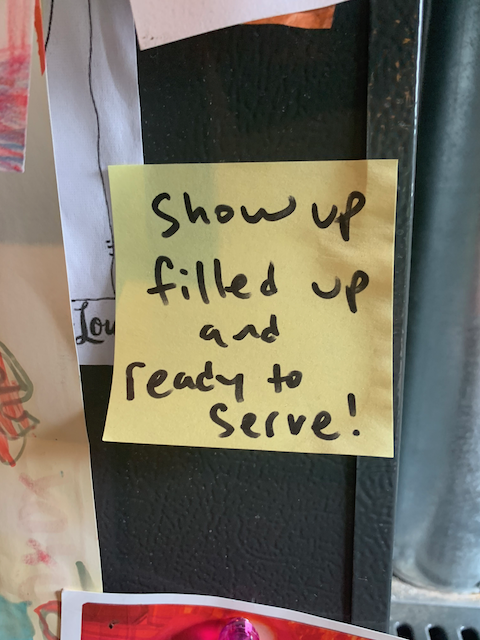
On March 11, 2020 the World Health Organization (WHO) declared that we are officially in a global pandemic.
It’s now May 13th, more than two months later, and many states around the U.S. are still in lock down.
Though some have taken issue with the use of the phrase “unprecedented times,” referring to this pandemic, it’s at least highly unusual in modern times, if not truly unprecedented!
Many of us are feeling stressed right now. I get it.
Me too.
In addition to the obvious health crisis, there has been a ripple effect caused by this virus: the temporary shut down of school campuses and businesses, and the government mandate to stay-at-home.
For many, life just feels overwhelming at this point. Though some states have now started re-open (Florida, Georgia, and Tennessee come to mind) others seem to still have a long way to go before restrictions significantly relax.
And yet, we have to move forward…
Life continues, even in a pandemic.
Second graders still need to pass the second grade, people need to hear the Gospel, and everyone still needs toilet paper, pandemic or not. ;-)
What should you be doing right now? Here are a few thoughts as I’ve considered this question for my own benefit.
1. Take care of yourself
Have you ever noticed that the person in the mirror is actually the most difficult to lead? She may be the most difficult to lead, but she is also the most important person to lead.
In his classic series, Habitudes, Dr. Tim Elmore, of Growing Leaders, uses a parable of a starving baker to describe a person who was constantly feeding other people, giving them bread, and yet forgot to feed himself. I’m concerned to think about many leaders not taking care of themselves right now.
Leading well in normal circumstances isn’t easy. Leadership in the midst of a crisis is extremely taxing.
As I’ve talked with various leaders, and assessed the condition of my own heart, I’ve noticed leaders putting a lot of pressure on themselves.
You may need to get creative at this point but find ways to take some time to do things that refresh you. This include things like exercise, devotional time reading the Bible and praying, and getting outside (as permissible).
Some of us adults (I’m preaching to myself here) need to remember how to have fun.
Most children are great at having fun. They are capable of finding “fun” in virtually any circumstance!
Recently on a walk with my two children (ages 8 and 6) they turned a grassy hill next to the sidewalk into an improvised slide. Rather innovative, I thought, and a good move since all the playgrounds in our state are currently closed! ????

Healthy, sustainable leadership begins with good self-leadership.
When a leader crashes and burns, the collateral damage is significant.
Taking care of yourself spiritually, mentally, emotionally and physically is vital to your longevity and effectiveness. It’s essential to pace yourself to finish well.
Please be kind to yourself today.
2. Continue to show up for those you serve
Of course, taking care of oneself doesn’t mean checking out indefinitely.
Leaders show up and serve.
Consistently showing up is underrated, but oh so powerful.
Film director and comedian, Woody Allen, once said, ’Showing up is 80 percent of life.’ Sometimes it’s easier to hide home in bed. I’ve done both.”
Most people have days when they would rather hide than show up and do meaningful work.
Sometimes we lose the fight, but good leaders don’t stay down. They show up.
We need to continue to show up in the lives of those around us. Some have described this simple act of showing up as “ministry of presence.” If we can be a peaceful presence in the midst of an anxious world, I believe we are already a part of the solution.
If we will just be consistent in showing up well, we will often be surprised with what happens in a year, two years, five years….
Last week I was on a prayer call with staff from across my ministry organization. It was incredible to hear how many ministries are experiencing growth as they are finding creative ways to show up for the students they serve.
3. Stride with purpose, don’t “drag in” disengaged
We all have things which don’t work out the way we’d hoped.
A thousand little things threaten to prick holes in our focus, sapp our energy and confidence, and (if we let it) deplete our faith.
Though we all have bad days, “showing up” over the long haul means more than bodily attendance.
Something which fundraising coach Mary Valloni said a while ago has really stuck with me. (I mean that both figuratively and literally, since what she said it’s now on a Post It note by my desk, right next to several of my kids’ drawings. ????)
She challenged ministry leaders to “Show up filled up and ready to serve.”
Perseverance certainly involves the will to keep going, but “showing up” is just the first step. What happens after that? What will be our posture, our attitude, when we get there—wherever “there” is?
The Apostle Paul wrote to the Thessalonian church about how he lived among them for their sake. (1 Thessalonians 1:4)
In this era of government-mandated “social distancing,” physical presence is something that isn’t always wise or helpful.
After weeks of schooling from home and online interaction only, the teachers and administrators at my two elementary-age children’s school organized a caravan of their cars around our neighborhood. The teachers and administrators drove around like a parade honking their horns and with balloons adorning their cars to wave at their students. My kids loved it!
We can still be present in people’s lives, even when we cannot be in their physical presence.
So much is new and different in this environment, but there are still creative ways we can “show up, filled up and ready to serve.”
4. Relentlessly add value to others
Finally, what do we do when we show up ready?
Jesus’ words, recorded in Mark 10:45 continue to challenge me and inspire me.
Referring to himself, Jesus said, “For the Son of Man did not come to be served, but to serve, and to give his life as a ransom for many.”
If Jesus, whom as I’ve explained elsewhere more than a smart Rabbi and the incarnation of God himself (as he claimed), then it’s a remarkable thing that his entire posture was one of service!
Leadership expert John Maxwell describes what he calls The Law of Addition, which simply states that leaders add value by serving others.
He urges leaders to ask themselves some tough questions along these lines. To leaders, Maxwell says:
“Since I’ve been leading my team, are things better for them or are things worse? Am I adding value to them, or am I subtracting value from them? Are my people better off because I’m a leader? Am I taking others to a higher level?”
“Leadership”, says Maxwell, “isn’t how far we advance ourselves, but how far we advance others.”
This is a healthy view of leadership.
When we show up, what are we there for?
The answer is simple: We are there to add value to people — that is, to serve them well.
In the spirit of adding value to others, I recently created a short e-book aimed at helping collegiate ministry leaders lead effectively. You can learn more about that here.

